Effects of Noise Reading Answers
6 min read
Updated On
-
Copy link
Table of Contents

Limited-Time Offer : Access a FREE 10-Day IELTS Study Plan!
The Academic passage ‘Effects of Noise’ is a reading passage that appeared in an IELTS Test.
Ideally, you should not spend more than 20 minutes on a passage. Let’s see how easy this passage is for you and if you’re able to make it in 20 minutes. If not, try more IELTS reading practice tests from IELTSMaterial.com
Effects of Noise
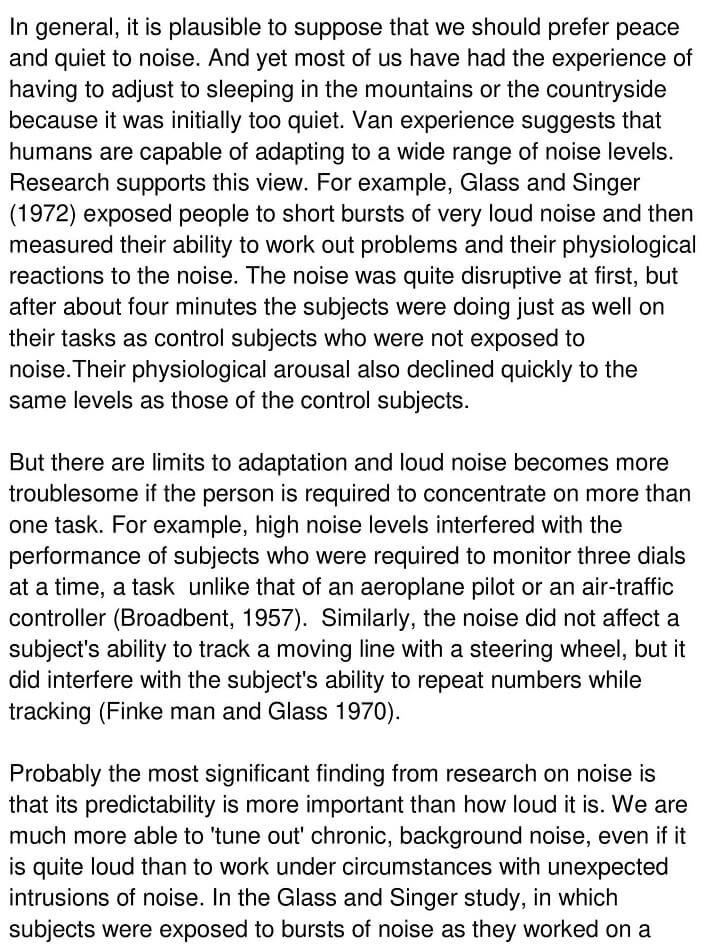
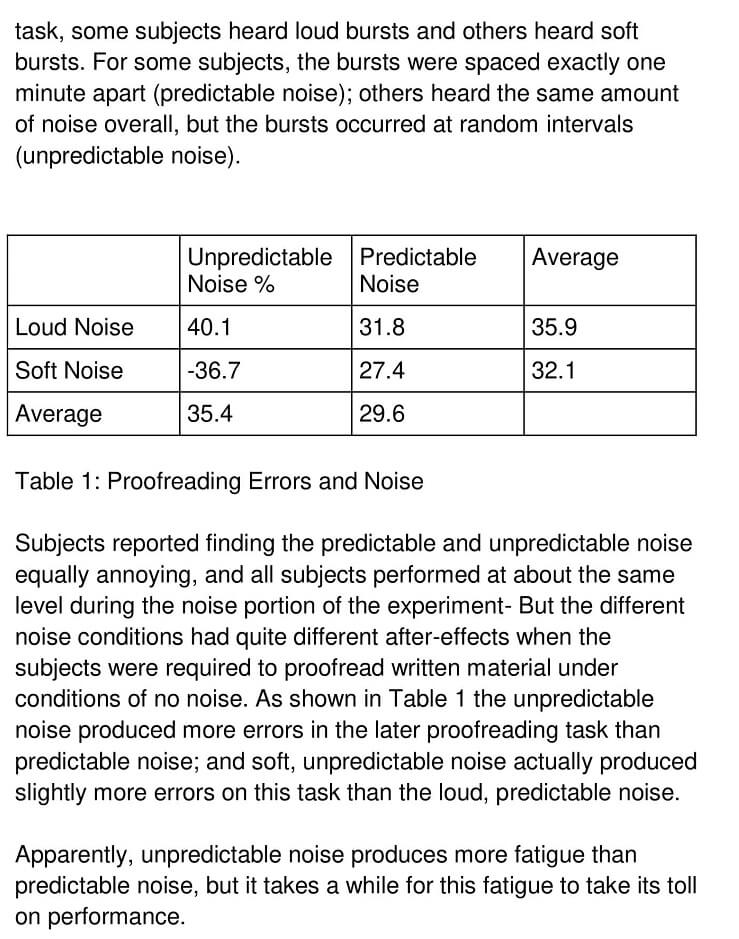
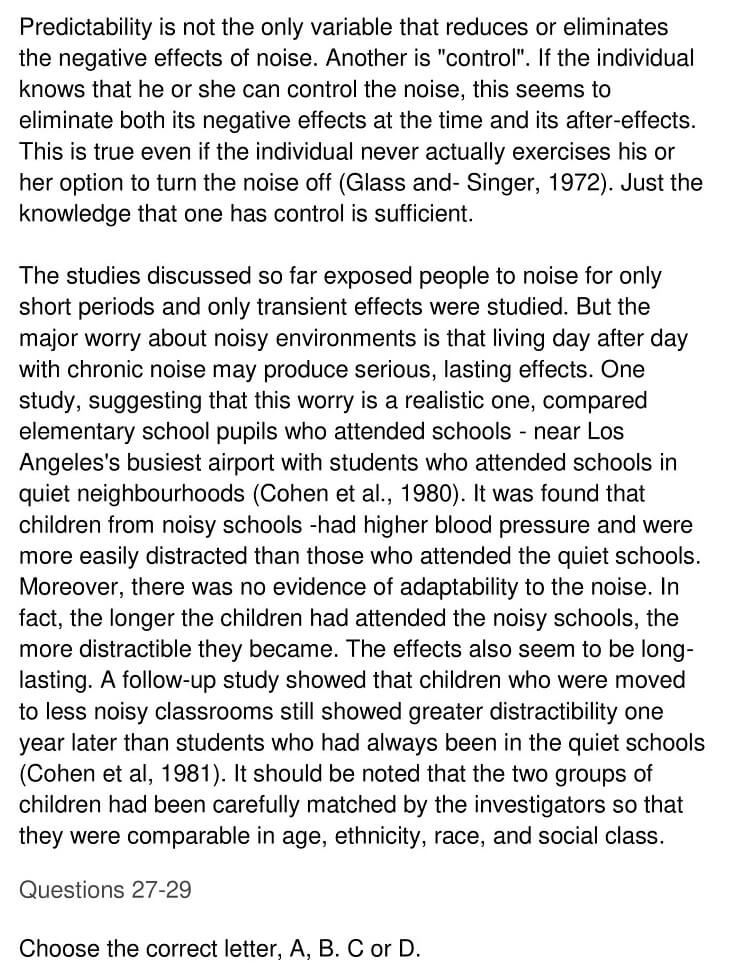
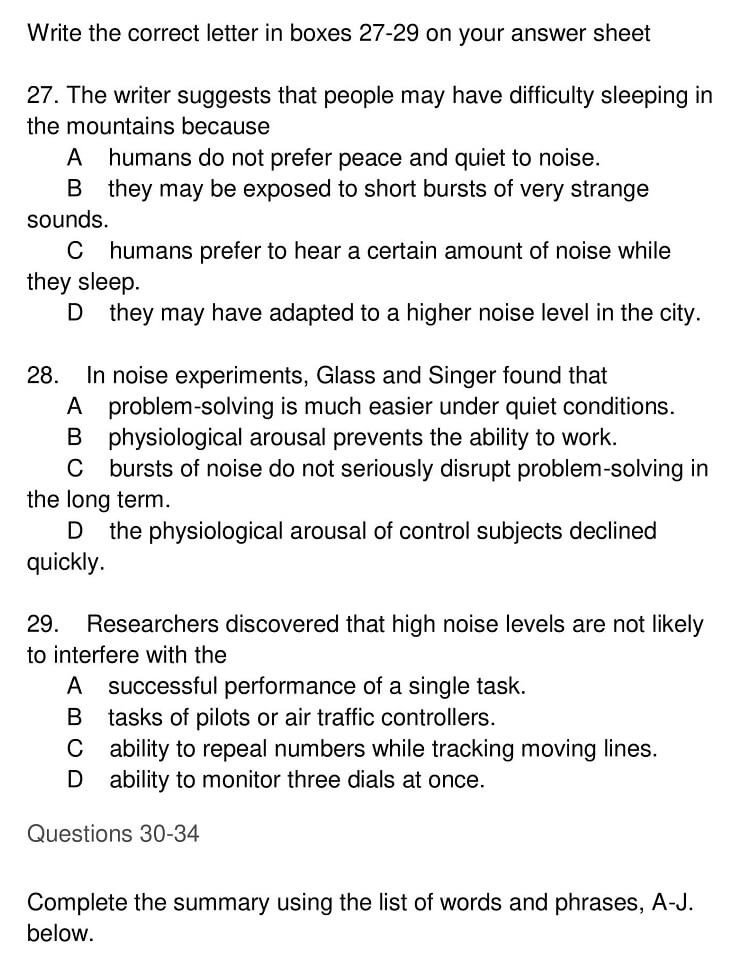
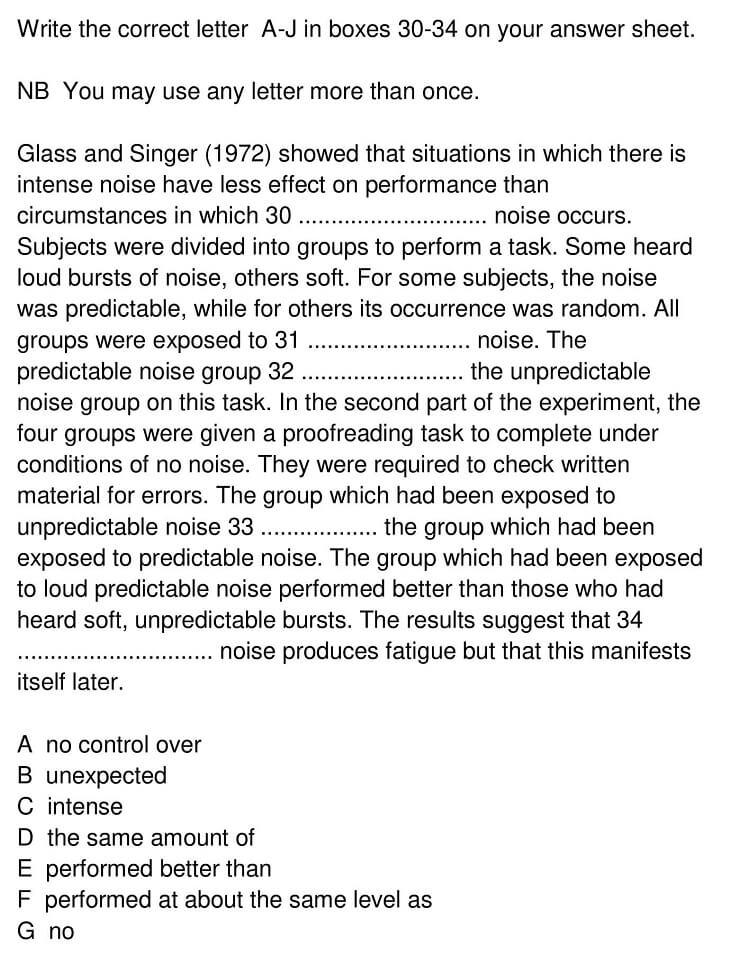
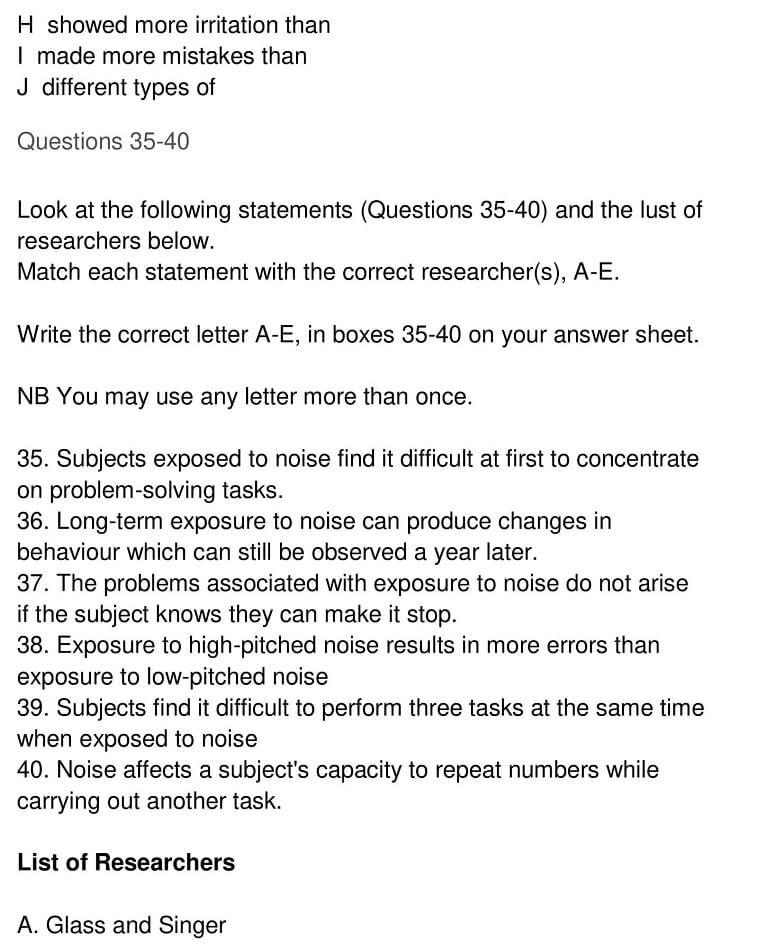
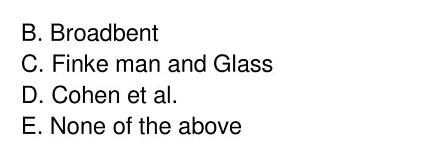
Answers
| Question Number | Answer | Explanation |
|---|---|---|
| 27. | D | In paragraph 1, the writer notes that most of us have had the experience of having to adjust to sleeping in the mountains (difficulty sleeping in the mountains) or the countryside because it was initially ‘too quiet’, an experience that suggests that humans are capable of adapting to a wide range of noise levels (humans adapt themselves to higher noise level when they live in the city). This is paraphrased in this sentence as “The writer suggests that people may have difficulty sleeping in the mountains because they may have adapted to a higher noise level in the city.” Hence, the answer is D (they may have adapted to a higher noise level in the city). |
| 28. | C | In paragraph 1, the author explains that Glass and Singer (1972) exposed people to short bursts of very loud noise and then measured their ability to work out problems and their physiological reactions to the noise. The noise was quite disruptive at first, but after about four minutes the subjects were doing just as well on their tasks as control subjects who were not exposed to noise.” So, it can be said that the subjects/people who participated in the experiments adjusted themselves to the noise after some time and it did not affect/disrupt the problem-solving capability in the long term. Hence, the answer is C (bursts of noise do not disrupt problem-solving in the long term.) |
| 29. | A | In paragraph 2, the author tells us that there are limits to adaptation and loud noise becomes more troublesome if the person is required to concentrate on more than one task. For example, noise did not affect a subject’s ability to track a moving line with a steering wheel, but it did interfere with the subject’s ability to repeat numbers while tracking. So, we can conclude that high noise may not interfere with the successful performance of a single task like steering a wheel, but it affects the task when it has to be done multiple times. Hence, the answer is A(successful performance of a single task). |
| 30. | B | In paragraph 3, the writer explains that we are more capable of ignoring (tune out) chronic background noise, even if it is intense noise, than to work under circumstances with unexpected intrusions of noise as proved by the Glass and Singer study. Hence the answer is B(unexpected) |
Unlock Answers
| 31. | D | Paragraph 3 indicates that in the experiment by Glass and Singer, subjects were exposed to bursts of noise as they worked on a task, some subjects heard loud bursts and others heard soft bursts. For some subjects, the bursts were spaced exactly one minute apart (predictable noise); others heard the same amount of noise overall (the word ‘overall’ tells us that the amount of noise was same throughout the experiment and all the groups were subjected to the same amount of noise), but the bursts occurred at random intervals (unpredictable noise). This shows that though there were differences in the types of noises, all groups were exposed to the same amount of noise. Hence, the answer is D (the same amount of). |
| 32. | F | In paragraph 3, the author states, “Subjects reported finding the predictable and unpredictable noise equally annoying, and all subjects performed at about the same level during the noise portion of the experiment.” This sentence is paraphrased as, “The predictable noise group performed at about the same level as the unpredictable noise group on this task.” Hence, the answer is F (performed at about the same level) |
| 33. | I | In paragraph 3, the writer explains the experiment further, “But the different noise conditions had quite different after-effects when the subjects were required to proofread written material under conditions of no noise. As shown in Table 1, the unpredictable noise produced more errors in the later proofreading task than predictable noise; and soft, unpredictable noise actually produced slightly more errors on this task than the loud, predictable noise.” This meant that the group who heard unpredictable noise made more mistakes compared to those who were subjected to predictable noise. Hence, the answer is I (made more mistakes than). |
| 34. | B | In paragraph 4, the writer discusses that unpredictable or unexpected noise produces more fatigue than predictable noise, but it takes a while for this fatigue to take its toll on performance. This sentence is paraphrased as, “The results suggest that unexpected noise produces fatigue but that this manifests itself later.” Hence the answer is B(unexpected). |
| 35. | A | Paragraph 1 relates that, in 1972, Glass and Singer exposed people, who are also referred to as subjects, to short bursts of very loud noise and then measured their ability to work out problems and their physiological reactions to the noise. The noise was quite disruptive at first, which made it difficult for the people to concentrate, ,but after about four minutes the subjects were doing their tasks properly. Hence the answer is A (Glass and Singer). |
| 36. | D | In the last paragraph, the writer explains the follow-up study by Cohen et al in 1981 that showed that children who were moved to less noisy classrooms still showed greater distractibility (produce changes in behaviour) one year (long term exposure) later than students who had always been in the quiet schools. Hence the answer is D (Cohen et al). |
| 37. | A | In paragraph 5, the writer argues that if the individual, or subjects, knows that he or she can control the noise or can make it stop, this seems to eliminate both its negative effects at the time and its after-effects (exposure to noise do not arise). This is true even if the individual never actually exercises his or her option to turn the noise off as found out by Glass and Singer in 1972. Hence the answer is A (Glass and Singer). |
| 38. | E | As there is no reference of any research that says that exposure to high-pitched noise results in more errors than exposure to low-pitched noise, the answer is E (None of the above). |
| 39. | B | Paragraph 2 brings out the fact that a study by Broadbent in 1957 says that high noise levels interfered (made it difficult) with the performance of subjects who were required to monitor three dials at a time (perform three tasks at the same time). Hence the answer is B (Broadbent). |
| 40. | C | Paragraph 2, the author informs that a study by Finkelman and Glass in 1970 found out that noise interfered (affected) with the subject’s ability to repeat numbers while tracking (repeat numbers while carrying out another task). Hence the answer is C (Finkelman and Glass). |
Check More IELTS Reading Answers
Also check :
Practice IELTS Reading based on question types

Start Preparing for IELTS: Get Your 10-Day Study Plan Today!
Recent Articles

Nehasri Ravishenbagam

Haniya Yashfeen

Haniya Yashfeen

Haniya Yashfeen




Post your Comments